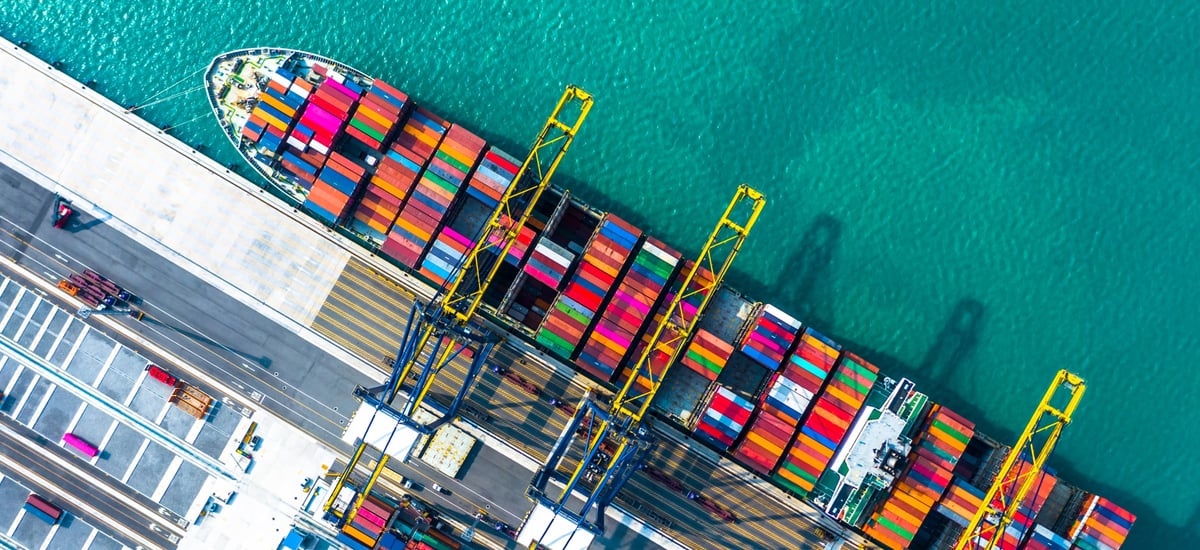
Georgia: A Global Gateway on the Black Sea
The Greeks, Romans and Ottomans all used Georgia’s Black Sea coast as a crucial supply route between Europe and Asia, but this global gateway has never had as much trading potential as it does today.
Along Georgia’s Black Sea coastline, harbors will be deepened, new docks will be constructed and container capacity will be expanded to accommodate the growing opportunities to ship cargo between East and West via the Georgian ports of Anaklia, Poti and Batumi.
The expansion is being supported by unprecedented investment from the government of Georgia, as it looks to position the Caucasus nation as the pivotal logistics hub of the increasingly important Middle Corridor trade route between China and Europe.
Prime Minister Irakli Garibashvili recently announced plans for a world-class deep-sea port at Anaklia, a historic town at the mouth of the Enguri River. The port will be capable of accommodating ships carrying up to 10,000 twenty-foot equivalent unit (TEU) containers. The Georgian state has a 51% stake in the project, working alongside partner investors.
Construction at Anaklia is planned to start this year, says Georgia’s Economy Minister, Levan Davitashvili. “Over the past year, work has been ongoing and meetings were held with potential investors, mainly with port operators and logistics companies that can be engaged in the process of project fulfilment alongside the state.”
By exploiting its Black Sea connections, Georgia can reduce the transit time for goods shipped from China to Europe to around 15 days. The Middle Corridor, a new Silk Road across the Caucasus, has emerged as a favorite route for shipping companies since the Northern Corridor route, which passes through Russia, has been affected by conflict and economic sanctions. Meanwhile, shipping goods from China to Europe by sea can take 45 days.

Georgia’s emergence as a critical gateway between East and West is bolstered by its portfolio of free-trade agreements—including those with the EU and China—which give Georgia access to a market of 2.3 billion people. Georgia’s business-friendly tax system offers low customs duties and charges 15% corporation tax only on distributed profit. For the past two years, Georgia has posted double-digit GDP growth, with an increase of 10.1% in 2022, following an uptick of 10.4% in 2021. The World Bank forecasts growth of 4% in 2023 and 5% in 2024, making Georgia a top-performing economy in the Eurasia region. In Q1 2023, Georgia beat that forecast with growth of 7.2%.
Georgia’s Black Sea trade route between Europe and Asia has also become increasingly attractive due to the global energy supply crisis, and Georgia will be a critical partner in bringing clean electricity from Central Asia to Europe.
Anaklia will be the starting point for the world’s longest submarine electricity cable, which will extend for 1,195 km (743 miles) under the Black Sea from Georgia to Romania. As part of the European Union’s Global Gateway initiative, this 3 GW high-voltage cable will connect the electricity systems of the Caucasus and continental Europe.
In December, Ursula von der Leyen, President of the EU, said that theproject could transform Georgia “into an electricity hub and integrate it in the EU internal electricity market.” Consultants from Italian company CESI and other partners in the cable project visited Anaklia in April to carry out surveys prior to installing the power transmission infrastructure.
At the nearby Black Sea port of Poti, a planned $250 million expansion project will greatly increase capacity to meet the demand for cargo handling, which has significantly grown since the start of 2022. The investment will support the creation of a deepwater port capable of accommodating 9,000-TEU vessels, and the expansion will include a breakwater of 1,700 meters and a 400-meter dock able to handle 150,000 TEUs of bulk cargo. The second stage of the port’s development will include a 300-meter container landing with three technologically advanced cranes. These improvements will double the annual container capacity of Poti Sea Port to over 1 million TEUs.

The need for enhanced Black Sea port facilities has been created by the surge in freight traffic through Georgia, which grew by 2.4% in the first quarter of 2023, following a 16.6% increase in 2022. The switch to the Middle Corridor led to queues of hundreds of trucks stretching for tens of kilometers as traffic was rerouted through the country.
Rail freight through Georgia grew by 5% in the first quarter of 2023 to 3.2 million metric tons. Georgian Railway, the national rail company, made record profits in 2022, and is set to increase its freight capacity from 27 million to 48 million metric tons by 2024. In April, Georgian Railway began transporting Toyota, BMW and Audi cars to Central Asia via the port of Poti.
Further south on the Black Sea coast, Georgia’s second-largest city, Batumi, is already a key logistics hub on the Trans-Caspian International Transport Route, as the Middle Corridor is also known. The Batumi International Container Terminal primarily handles rail freight from China, and ships it to Europe across the Black Sea to Constanta, Romania.
In the first three months of 2023, Georgia’s ports received 3,931 ships, according to its National Statistics Office. The number of general cargo vessels, the largest category, increased by 5.4% and the number of container vessels grew by more than 43% compared to the same period in 2022.
As Georgia’s value as a critical East-West transport node becomes increasingly evident, these numbers are likely to continue to grow.
